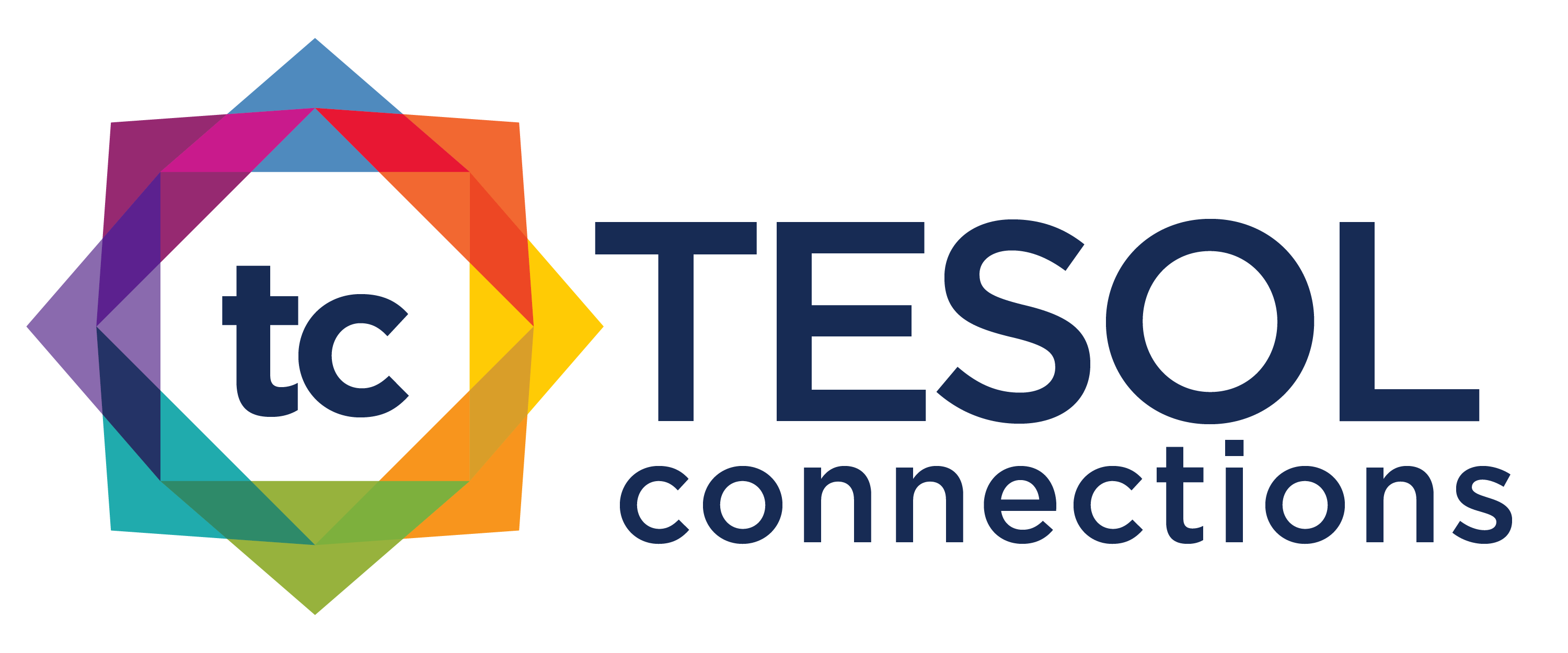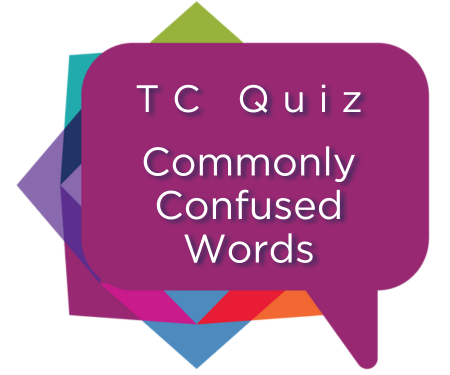KEEPING ENGLISH LANGUAGE PROFESSIONALS CONNECTED
PD Corner
From Novice to Master: Transformative Teacher Training That Works
In the ever-evolving landscape of education, one thing remains constant: the transformative and often challenging journey that distinguishes a professional with a teaching degree from a Teacher, with a capital T. Reflecting on my journey, I vividly recall the nerves and excitement of stepping into a classroom filled with 42 sixth graders, a quarter century ago. It was a daunting task no single course could have prepared me for. Yet, it wasn't until later, after years of experience and growth, that I truly felt at home in that classroom. Along the way, I've shied away from using the word calling to describe what propelled me forward, opting instead for terms like passion and purpose. But now, as I look back, I realize that any single word falls short of capturing the dedication and effort that the teaching journey entails.
Now, having navigated this journey, attention turns to the realm of teacher training, where the challenge lies in empowering educators to unlock their full potential. The classroom becomes a canvas for change, where the next generation of Teachers, with a capital T, can be nurtured. How can we provide the tools and support necessary for educators to flourish? As we strive to elevate the standards of teaching and embrace the constantly changing nature of education, a few principles come to mind. Transformational teacher training should
-
- foster enthusiasm,
- embrace professional standards,
- use technology, and
- encourage collaboration.
Foster Enthusiasm
 When I first came across the Singapore Teacher’s Pledge, the statement that resonated with me the most was “We will continue to learn and pass on the love of learning to our students.” Learning, not teaching! The emphasis on learning rather than teaching sparked a paradigm shift in my perspective. Perhaps, all this time, we’ve approached teacher training from the wrong angle. What if instead of training teachers to impart knowledge, we focused on keeping teachers burning for learning? By fostering a genuine enthusiasm for the process of acquiring knowledge and cultivating their love for learning, we can create an environment in which students are inspired by their teachers’ curiosity and eagerness to keep on exploring.
When I first came across the Singapore Teacher’s Pledge, the statement that resonated with me the most was “We will continue to learn and pass on the love of learning to our students.” Learning, not teaching! The emphasis on learning rather than teaching sparked a paradigm shift in my perspective. Perhaps, all this time, we’ve approached teacher training from the wrong angle. What if instead of training teachers to impart knowledge, we focused on keeping teachers burning for learning? By fostering a genuine enthusiasm for the process of acquiring knowledge and cultivating their love for learning, we can create an environment in which students are inspired by their teachers’ curiosity and eagerness to keep on exploring.
Provide meaningful professional development by offering workshops, seminars, and courses that are relevant, engaging, and directly applicable to teachers’ needs and interests. Recognize that teachers have different interests, strengths, and areas for growth. When catering to individual needs and preferences, rather than offering a one-size-fits-all program, you are more likely to spark creativity and foster enthusiasm. Another benefit of this approach is that it encourages the development of a multitalented team.
Embrace Professional Standards
Many of the leading countries in the OECD’s Programme for International Student Assessment (PISA), such as Singapore, Estonia, and Australia, have all successfully created standards for teacher education programs, and the results speak for themselves: When teachers thrive, students follow! Paraphrasing Lewis Carroll in the dialogue between Alice and the Cheshire Cat, if you want to know where to go, you should first find out where you want to end up, and that’s where professional standards come into play.
Professional standards are the lighthouse of teacher training for teachers and schools alike. In simple terms, this set of well-thought-out descriptors helps map out the skills teachers already have in comparison to the skills they wish to have. With this in mind, when the state of California first implemented the California Standards for the Teaching Profession and the Continuum of Teaching Practice, they set forth a vision for the teaching profession that promoted both self-reflection and professional fulfillment. By establishing nonchronological developmental levels, such as emerging, exploring, applying, and integrating, not only did they give teachers a tool to make valid and accurate self-assessments, but they also supported reflective ongoing learning.
Developing professional standards for educators is a crucial step in ensuring quality teaching and learning outcomes within a school. Professional standards can help schools and teachers craft professional development programs that are tailored to their context and specific needs, thus improving initial teacher education while offering ongoing professional development in various stages of their careers.
How can a school develop or adapt an existing set of standards?
-
- Define the purpose: Consider the specific needs and priorities of the school community, including the academic goals, values, and vision.
- Engage stakeholders: Seek input and feedback from teachers, administrators, students, parents, and community members.
- Review existing standards: If the school doesn’t have a set of standards, promote a study group to get to know some of the standards out there, starting with those mentioned earlier in this article. Identify relevant components and adapt them to suit the specific context and needs of the school.
- Establish core competencies: Identify the core competencies and skills that educators should demonstrate to effectively support student learning and achievement. Those may include areas such as subject knowledge, pedagogical skills, classroom management, assessment practices, cultural competency, and professional ethics.
- Establish evaluation criteria: Develop clear criteria and benchmarks for evaluating educator performance. Consider how performance will be assessed, documented, and reviewed, and establish processes for ongoing feedback and support.
- Run a pilot test and refine your work: After drafting a set of clear, concise, and measurable standards, pilot test the draft standards with a group of educators to assess their clarity, feasibility, and effectiveness. Gather feedback and refine the standards.
- Monitor and review: Regularly review and evaluate the new standards to ensure they remain relevant and effective.
- Define the purpose: Consider the specific needs and priorities of the school community, including the academic goals, values, and vision.
Use Technology
Professional learning isn’t confined to traditional academic settings. Technology can significantly increase opportunities for continuous growth and development. Digital platforms offer a wealth of resources, such as online courses, virtual conferences, and educational apps, that enable educators to access tailored learning experiences at their convenience. Certifications like DipTESOL are offered 100% online or in blended format by renowned institutions like Cambridge and the International House.
Video conferencing and online platforms, such as Teachers.net, can also help you set up a collaboration program with a partner school in a different city or country. Work with another administrator to promote online meetings to discuss a specific topic, or just to share notes. Embracing technology not only expands access to professional learning opportunities but also empowers educators to leverage innovative teaching strategies and stay abreast of emerging trends in education.
Encourage Collaboration
Although academic engagement supports professional learning, teachers can also benefit from formal and informal collaborative activities within learning communities, such as TESOL regional affiliates and other interest groups. These communities serve as invaluable platforms where educators can engage in self-study, exchange ideas, and explore context-specific alternatives for professional learning. They also foster a spirit of camaraderie and collective learning, enabling teachers to draw upon a wealth of diverse perspectives and experiences to enrich their practice.
In addition, many nonprofit organizations play an important role in making professional development programs accessible to teachers from different corners of the world by promoting webinars, learning festivals, and English language teaching development events. You can find lists of annual and ongoing events online at sites like British Council and TESOL's Calendar of Events page.
Within your school or program, implementing a mentoring program or peer learning community can be highly beneficial for professional development among educators. Mentorship programs and peer learning communities within the school can foster a culture of sharing expertise and best practices.
To launch a peer learning community, start with the following steps:
-
- Identify your specific goals, target participants, and desired outcomes.
- Consider factors such as experience levels, subject areas, and areas of growth.
- Define the structure or format of the program, including frequency and duration of the meetings, group size, and communication channels.
- Invite educators to express interest to join.
- Get to work!
Don’t forget to keep the light burning by regularly asking for feedback and adjusting the program so that it stays relevant.
Celebrate Success Together
The journey from a teacher to a Teacher is not a solitary road, but a collective pursuit—a shared commitment to excellence, innovation, and the transformative power of teaching. As we embark on this journey together, let us embrace the challenges that lie ahead, drawing strength and inspiration from each other. Let us also take moments to celebrate the successes, both big and small, that mark our progress along the way, acknowledging the dedication and hard work that have brought us to where we are.
Also In This Issue
‣ Sparking Student Success with Professional Learning Communities
‣ TESOL Annual Report: 2023 in Retrospective
‣ AI Tools for the Four Skills in English Language Learning
‣ TESOL 2024 International Convention Highlights
‣ TC Quiz: Commonly Confused Words in English
Recent TESOL Blogs
‣ Teaching About Eid al-Fitr and Eid al-Adha: Activity Ideas for Your Classroom
‣ Earth Day 2024: Classroom Activities for Multilingual Learners of English
‣ Beyond the Buzz: 5 Ways to Cultivate Convention Connections
‣ Taylor Swift, Global Literacies, and ELT: Are You Ready for It?



About the author
Carol Calil
Carol Calil is a passionate educator with 24+ years of English language teaching experience, a master's degree in applied linguistics, and an MBA in school management. She has focused her career on building strong and cohesive language teams that make learning happen beyond the classroom walls. Currently working as a school coordinator, Carol’s mission is to help teachers with the design of great learning experiences.